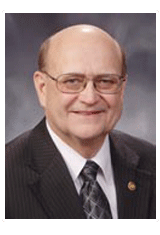In 1620, building a colony in the New World was seen about the same way setting up a colony on the Moon would be today: Sure, you could do it, but why? At that time, settling in America was an incredible achievement, but with few rewards and lots of risk. British colonialism hadn’t quite taken hold in the early 17th Century.
There had been attempts, of course. Jamestown was established by that point, but it wasn’t exactly a rousing success. Most of the original settlers died within the first year or two from disease, starvation or skirmishes with local Native Americans. Enough of that original party had survived to keep a foothold in America, but it was hardly a model to be imitated. And Roanoake, Sir Walter Raleigh’s failed Virginia colony where every single settler mysteriously disappeared, was still a recent memory.
Some, however, were still willing to try.
The Pilgrims started their journey in early September of 1620 on the Mayflower, a ship previously used for transporting wine from France to England. It had been retrofitted to make the long journey across the northern route of the Atlantic, which had only been attempted a few times by the British, and only successfully once (most sailors favored hugging the coast of Europe south and then sailing west until a trade wind would carry them to the Americas).
It would take 67 days of complete and utter wretchedness, cramped into the hold of a ship no longer than a hundred and fifty feet with a ceiling around 5 feet tall, to make the journey. Amazingly, only one passenger perished on the way.
The true misery began when they reached land. They’d arrived late in the season, with only a little time to build the most rudimentary of shelters. Food was short, as the journey had taken longer than they’d expected. More than half didn’t make it through the winter, succumbing to starvation or one of the many diseases they’d caught in the dirty, festering hold of the Mayflower.
By the next year, things would turn around drastically for the settlers. The Pilgrims adapted to their new home, learning to plant maize and to hunt and fish in the wilds of the New World. They befriended local Native American tribes. They prospered.
In November of 1621, the Pilgrims celebrated the success of their fledgling colony with a feast, inviting their new Native American allies to the festivities. The event, which we base our Thanksgiving holiday on, lasted around three days. Against the worst of conditions, and through nightmarish ordeals we can’t even imagine, the Pilgrims had settled in America.
The traits that defined those settlers seeped into our national identity, from the desire for independence and freedom of religion to their steely determination and unwavering faith in a higher power and a higher cause.
The Pilgrims were bold when they had little reason to be, and daring when others would have faltered, but it was exactly those qualities that allowed them to succeed in the face of incredible odds. We would call again on those same traits a little more than a century later to win our independence from England, and again and again in our history to see us through our darkest hours.
When you give thanks this year during your annual Thanksgiving dinner, remember to be grateful for the place we call home. Remember the Pilgrims, who suffered greatly for the freedoms we now have, but whose grit and resolve are still part of us today. Remember our soldiers, who serve overseas, far away from their families during the holidays, to protect this democracy we’ve built. Remember that the history of the United States is amazing, and not touched a little by the miraculous. We are lucky to be Americans, blessed even, and that’s something for which to be very thankful.
Always feel free to contact me throughout the year with any comments, questions, or issues by calling my office at (573) 751-5713 or by visiting my website at www.senate.mo.gov/brown.
Thank you for reading this and for your participation in state government.
|



